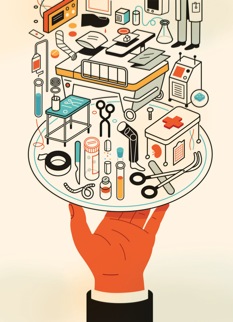As the largest U.S. health insurance companies struggle to cut costs, many are reverting to similar models of managed care. A recent Wall Street Journal article, “Remember Managed Care? It’s Quietly Coming Back,” explains how some health insurers are developing plans with more restricted choices of doctors and hospitals, and weighing new requirements for referrals before patients can see specialists. Insurers argue that the new managed care plans will be very different from the 1990’s version and will help reduce medical expenses.
While both sides of the managed care debate provide valid points, it is also important remember why this kind of plan was implemented within American health care in the first place. The fact is, the U.S. spends substantially more on health per capita than many other developed countries but we don’t have superior health system performance.
In a report by PBS Frontline, “The High Price of Health: A report on the managed care revolution and it’s impact on doctors, nurses and patients,” provides an in-depth look into the pros and cons of managed care and makes the case that whether people are for managed care or not, creating a model that both cuts cost and provides quality health care is most important. In the report Mark Roberts, a professor of political economy at the Harvard School of Public Health states:
“So the challenge of managed care today is not whether we should be for it or against it. The alternative – totally unmanaged care – comes with a price tag neither the public sector, nor the private sector can afford. Global economic competition and the impending retirement of the baby boom generation means that neither corporations nor tax payers can go back to the old fee-for-service, use-whatever-you-want system. The task is to make sure that we get more of the good kind of managed care and less of the bad. Plans that offer value-for-money and good customer service need to be the ones that succeed in the marketplace.” Read more…




